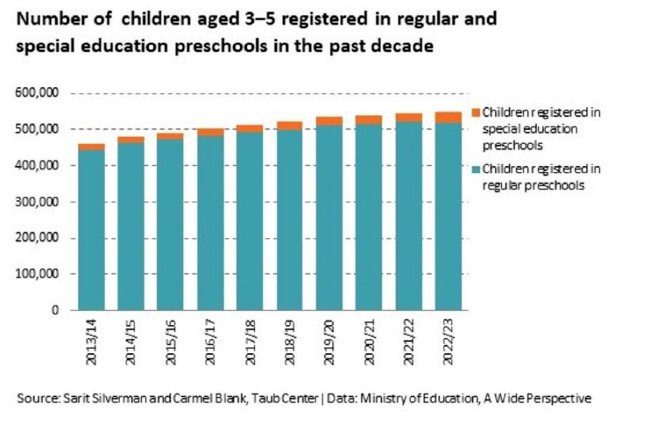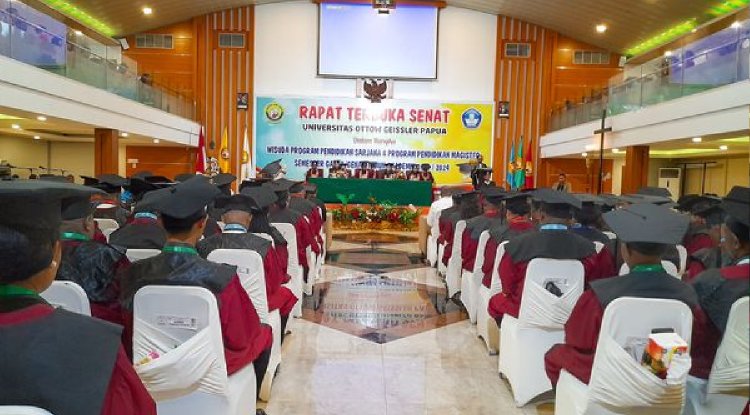A NEW REPORT SHOWS THAT SPECIAL EDUCATION FOR YOUNG CHILDREN IS UNDERFUNDED, UNPLANNED, AND NEGLECTED.
By JUDY SIEGEL-ITZKOVICH, January 3, 2024 05: 58 AM
Studying at Ohr Moshe retrains students to believe in themselves.
((Photo Credit: Levi Dovid / Ohr Moshe)
Children in special education classes are especially vulnerable, both on ordinary days and in times of war. The final chapter of the State of the Nation Report, just released by the Taub Center for Social. Policy Studies in Jerusalem, states that in the coming years, the preschool system will need more staff trained in special education.
Although the number of children entering special schools continues to increase, it is difficult to establish policies due to a lack of data. There are an estimated 1,286,000 Israeli children from birth to age six in 2022, and the number is expected to reach 1,476,000 by 2032.
Dr. Sarit Silverman and Dr. Carmel Blank, Taub's researchers, concentrate on specific issues facing policymakers as they seek to improve the quality of early childhood education and child care frameworks. In the 2022–23 school year, there were around 520,000 children enrolled in regular preschools and around 27,000 children enrolled in special preschools. The number of children enrolled in regular preschools increased by 3.9 percent from the 2018–19 to 2022–23 school year, while the number of children enrolled in extraordinary preschools increased fivefold, at a rate of 20.3 percent.
More than 90 percent of daycare center directors reported difficulty in recruiting new staff, and nearly 60 percent cited the large number of children in groups and hard work as other reasons.
Problems still exist in special education facilities.
To find out how severe the employment problems in daycare facilities are, Blank surveyed teachers, caregivers, and daycare center directors in Hebrew and Arabic between January and March 2023. The results show an alarming situation. More than 80% of directors of subsidized child care centers and two-thirds of those in private child care centers report a shortage of labor at least one or two days a week. Many of the respondents reported a shortage of three or more days a week.
Collecting comprehensive data on children with special needs, including sociodemographic data and information on the types of their disorders, is essential to evaluating the early childhood special education system and to ensuring that young children are not impaired. Taub researchers state that this data is currently not available.
Increased supervision of daycare centers allows for the systematic collection of data about them, staff, and children present. This is the policy alternative they propose.
The government presented a" revolutionary five-year plan" in the field of early childhood education and care a year ago in an attempt to lower the cost of living for parents with young children. An increase in subsidies for supervised preschools and the provision of tax credits for working parents of children from birth to three years of age should be able to achieve this. They write that in the absence of price regulation, school fees may subsequently increase, lowering the financial responsibility of parents.
Additionally, despite the program setting aside a sizable budget for the construction of subsidized preschools, Arab local authorities have not yet used the entire budget. They stated that the designed program does not address many of the challenges that stand in the way of the construction of new facilities.
Improvement of staff supervision and training systems, as well as an increase in the ratio of staff to children, are other elements of this five-year program focused on improving the quality of education. For more than a year, persistence grants were awarded to teachers and caregivers. However, the program failed to substantially improve working conditions, although it was the most likely method of attracting highly talented employees. and still put it in the system.
“These findings show how limited the plan is. Blank stressed that it does not lower the number of children in a group or improve the working conditions of teachers and caregivers. Although the program raised the wages of nannies within the framework of subsidized child care, it did not reduce the difference in salaries between nannies within the framework of private child care, which also lacks labor.
The researchers suggest increasing the number of preschools offering special education. The expansion of the early childhood education and childcare system and the increase in the employee-to-child ratio are hampered by the worsening labor crisis within the framework of childcare, both in quantity and quality. They suggest that focus be placed on increasing the number of employees and ensuring that highly skilled employees are hired and retained.
Fundamentally, improving working conditions is the only way to achieve this. These improvements include increasing wages, developing more professional training and improvement programs, and reducing the burden on caregivers by reducing the employee-to-child ratio.
To ensure that there is an adequate educational framework for all, large-scale investments in infrastructure are needed as the ultra-Orthodox (haredi) and Arab populations increase. This is especially important given the high level of poverty among these groups.
Silverman says that "there is increasing recognition of the importance of early childhood education both in public discourse and among policymakers." High-quality and accessible early childhood education and childcare must take place urgently in view of the poor labor conditions and demographic predictions for the next ten years."
News Sources : ( https://www.jpost.com/israel-news/article-780539 )
What's Your Reaction?























